


In accordance with the Universities of Applied Sciences Act, everyone graduated with a Bachelor’s degree knows at least two European languages besides their mother tongue. The extent of the language and communication studies at SAMK varies in each degree programme.
The English degree programmes have slightly different language studies from the Finnish ones. The target level of English studies for a Bachelor’s degree has been defined to level B2 and of Swedish studies to B1 in the grading of the CEFR, Common European Framework of Reference.
In accordance with the Universities of Applied Sciences Act, everyone graduated with a Bachelor’s degree knows at least two European languages besides their mother tongue. The extent of the language and communication studies at SAMK varies in each degree programme. The English degree programmes have slightly different studies from the Finnish ones. The target level of English studies for a Bachelor’s degree has been defined to level B2 and in Swedish studies to B1 in the grading of the CEFRCommon European Framework of Reference.
Regarding other languages and RPL, please contact the teacher in question.
The language proficiency is described with a six-level scale:
Proficient user:
C2 Perfect, precise and correct use of language in complex situations
C1 Diverse and effective use of language
Independent user:
B2 Fluent and spontaneous communication
B1 Deals with the language whilst travelling
Basic user:
A2 Social interaction and brief descriptions
A1 Basic needs and very familiar topics with simple phrases
Target levels in different levels of education
upper secondary school/high school/sixth form college: Swedish B1, English B2
upper secondary vocational education and training: Swedish A1 – A2, English A2 – B2
institutes of higher education/universities: Swedish B1, English B2
N.B. The aim of language studies at the higher education institution is to broaden the skills towards a profession/discipline, not to raise from one level to another.
The Master’s degrees do not include compulsory language and communication studies.
Depending on your degree programme at SAMK, you will complete at least the following compulsory language and communication studies:
Language studies in degree programmes
In addition to these, you can take elective and preparatory language studies.
§ 7 Language skills
During the studies included in the degree of a university of applied sciences or otherwise, the student must demonstrate to have acquired:
1) such language skills in Finnish and Swedish which are required of state officials functioning in a bilingual office of a public organization according to Act 424/2003 and which are necessary for practicing the profession and for further professional development; and
2) such spoken and written skills in one or two foreign languages which are necessary for practicing the profession and for further professional development.
What is decreed by clause 1 does not apply to a student who has acquired his/her school education in other language than Finnish or Swedish, nor a student who has acquired his/her school education abroad. Thus the language skills requirements are decided by the university of applied sciences.
The university of applied sciences, based on a special reason, can exempt the student partly or entirely from the language requirements decreed in clause 1. The language skills acquired by the student are presented in the degree certificate. Records of the language skills in Finnish and Swedish must observe the Government decree (481/2003) § 19 issued by the state administration.
Government decree on demonstrating language skills in Finnish and Swedish in state administration:
19 § Records of language skills in higher education certificate
(unofficial translation from Government Decree 481/2003, English translation not available)
The degree certificate of a higher education institution degree states
If you have completed a vocational upper secondary qualification, your language of school education is the language in which you completed the native language syllabus (not as a second language) at comprehensive school.
If you have graduated from upper secondary school, your language of school education is the language in which you completed the native language syllabus (not as a second language) at upper secondary school.
You can check your language of school education from the school-leaving certificate of comprehensive or upper secondary school. The matriculation examination (or IB, EB, Reifeprüfung) does not influence the language of school education.
If you have completed your upper secondary qualification abroad, your language of school education is the language in which you completed the native language syllabus at comprehensive school.
Did you complete the native language syllabus in Finnish at comprehensive school, but in Swedish at upper secondary school? (Or vice versa.) In this case, you can choose, when starting your studies at a university, which language you want to use as your language of school education throughout your studies.
Your language of school education is “other language than Finnish or Swedish”:
If your language of school education is other than Finnish or Swedish, you cannot use it to demonstrate the excellent proficiency in Finnish or Swedish required for central-government positions in the language of the majority population in bilingual areas. Government Decree 481/2003 on the demonstration of language skills in Finnish and Swedish (unofficial translation of Valtioneuvoston asetus suomen ja ruotsin kielen taidon osoittamisesta valtionhallinnossa, 481/2003, English translation not available).
Instead, you can demonstrate that you have the required excellent language proficiency with the tests included in the matriculation examination: the native language test (Finnish or Swedish) with the grade of magna cum laude approbatur or higher, or the Finnish or Swedish as a second language test with the grade of eximia cum laude approbatur or higher.
The student can for a particular reason be partly or entirely exempted from completing compulsory language studies stipulated in Act 1129/2014 § 7. Particular reasons include the following a) the student has not studied the language before b) the language is the student’s native language or c) other reason, e.g. a diagnosed severe dyslexia or other verified learning difficulty, which affects language learning.
This means that the student does not need to complete the compulsory language studies in a foreign language and/or in one national language included in the curriculum. However, exemption does not decrease the number of credits required for the degree and the student has to complete other studies with the same number of credits as the compulsory language studies. If possible, these studies should support language studies. However, if the student has clearly problems in learning languages, they can complete other studies which support the degree studies. Information on the exemption is marked in the supplement of the diploma.
The entire procedural instructions on completing the studies and exemptions from the compulsory language studies can be found in Quality manual, in ARC.
ME1202 Completing studies (ARC requires SAMK-login)
ME1203 Exemption from language studies (ARC requires SAMK-login)
The exemption application can be found from Loki (PSL, section RPL) and it is addressed to Pirjo Raunio, Head of Teaching.
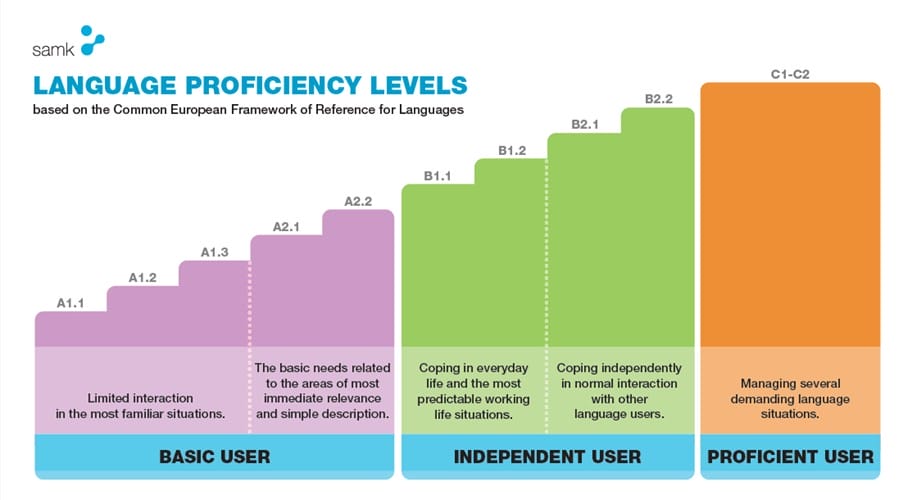
At SAMK you can study elective and preparatory language studies. We offer elective and preparatory language studies in accordance with SAMK’s annually confirmed language programme.
German in English 1, 5 cr
This course offers you tools to get started with your German studies. The course will introduce simple everyday language situations, which are practiced both during online lessons as well as on your own time. You are expected to know English since it is the language used in teaching, alongside with German. No previous studies in German are required.
Level A1.1
German in English 2, 5 cr
This course continues German 1 and offers you more tools to your German studies.The course will introduce more everyday language situation, which are practiced both during online lessons as well as on your own time. English is the language used in teaching though we are using more German now. Participation to the course requires that you have completed German1 or you already have the knowledge of the basics.
Level A2.1
Spanish in English 1, 5 cr
This course offers you tools to get started with your Spanish studies. The course will introduce simple everyday language situations, which are practiced both during online lessons as well as on your own time. You are expected to know English since it is the language used in teaching, alongside with Spanish. No previous studies in Spanish are required.
Level A1.1
Spanish in English 2, 5 cr
This course continues Spanish 1 and offers you more tools to your Spanish studies.The course will introduce more everyday language situation, which are practiced both during online lessons as well as on your own time. English is the language used in teaching though we are using more Spanish now. Participation to the course requires that you have completed Spanish1 or you already have the knowledge of the basics.
Level A2.1
Finnish 1, CEFR A1.2, 3 cr
The course provides students tools to begin studying Finnish language. The student will learn the basics of Finnish language. The course will introduce simple everyday language situations at home and at working life, which are practiced both in classroom as well as your own time. The student is expected to know English since it is the language used in teaching, alongside with Finnish. No previous studies in Finnish are required. The course is offered as contact lectures and as an online course.
Classification of competence: basic user A1.2
CEFR (Common European Framework Reference level)
Finnish 2, CEFR A2.1, 4 cr
This course continues from the Finnish 1 course and gives students additional tools for Finnish language studies. The student learns more the basics of Finnish language. The course will introduce simple everyday language situations at home and at working life, which are practiced both in classroom as well as your own time. English is the language used in teaching though we are using more Finnish now. Participation to the course requires that you have completed Finnish 1 or you already have the knowledge of the basics. The course is offered as contact lectures.
Classification of competence: basic user CEFR A2.1
CEFR (Common European Framework Reference level)
Finnish 3, CEFR A2.2, 3 cr
This course offers tools to deepen Finnish skills after course Finnish 2 (CEFR level A2.1). The student can manage both everyday situations and some professional communication. The student can use the past tense, understand and participate in discussions on most everyday topics, and write about everyday situations. The student understands and communicates in basic Finnish. The course is offered as contact lectures. English is the language used in teaching though Finnish is used more now.
Classification of competence: basic user CEFR A2.2
CEFR (Common European Framework Reference level)
Finnish 4 (online), CEFR A2.2, 4 cr
The student will strengthen and expand their basic skills in Finnish language at the level A2. The student can communicate with simple sentences in everyday life and some professional communicative situations. They understand general speech and recognize the topics in a conversation. They have learnt to guess the meaning of unfamiliar words and categories of words. The student can write short texts on familiar and everyday topics with the most common vocabulary and structures. The course is offered online. English is used in support of teaching.
Classification of competence: basic user CEFR A2.2
CEFR (Common European Framework Reference level)
Finnish 5 (online), CEFR B1.1, 4 cr
The student becomes more familiar with different types of text and everyday and working life themes. The student can follow a discussion based on general knowledge and general experience and read a wide range of texts, a few pages long. The student can also tell some details about familiar things and communicate things that are important to them. The student can use a fairly extensive everyday vocabulary and some common phrases and idioms as well as several different structures. The student can effectively convey familiar information in the most common forms of written communication. The course is offered online. English is used in support of teaching.
Classification of competence: independent user CEFR B1.1
CEFR (Common European Framework Reference level)
Check always with Peppi when the courses are available!
Introduction to Finnish Business Language 1, CEFR A1.3, 2 cr
This course offers tools to continue with Finnish studies after the course Finnish 1 (CEFR level A1.2) The student will learn more of the basics of Finnish language. The student manages simple everyday and some professional communicative situations by using simple sentences. They understand and produce short texts on familiar and everyday topics. The student understands and communicates in simple professional Finnish.
Classification of competence: independent user CEFR A1.3
CEFR (Common European Framework Reference)
Introduction to Finnish Business Language 2, CEFR A2.2., 5 cr
This course offers tools to continue with Finnish studies after the course Introduction to Finnish Business Language 1 (CEFR level A1.3). The student can manage both everyday situations and some professional communication. The student can use the past tense, understand and participate in discussions on most everyday topics, and write about everyday situations. The student understands and communicates in basic Finnish.
Classification of competence: independent user CEFR A2.2
CEFR (Common European Framework Reference level)
Check always with Peppi when the courses are available!
Kielibuusti: Web-portal to find Finnish language learning materials and information about Finland and Finnish culture.
For self learning in level A1-A2:
Duolingo: App, fun and easy way to learn and practice Finnish language.
Superalkeet: practical, many exercises
Suomi sujuu: speaking and reading practices
Sinä osaat! Videos with clear content about learning Finnish
Suomen kielen alkeet: speaking, vocabulary, listening…
YLEn opiskelumateriaali: Selection of programmes with various content. May require use of VPN or being in Finland to view.
Finnish with Anna: Youtube channel, easy to use, clear explanations in English, pronunciation, vocabulary, grammar.
KatChats Finnish: YouTube channel, easy to use, pronunciation, vocabulary, grammar.
Uusi kielemme: a lot of material, vocabulary, grammar…
Opeton: app, focus on speaking Finnish
Babadada: focus on vocabulary
Tieteen termipankki: extensive, easy to use, vocabulary.
The aim of the preparatory language studies is to strengthen your basic language proficiency so that it will be possible for you to complete the compulsory professional language studies. In the Finnish degree programmes, an English and a Finnish Placement test are performed. Finnish students in English degree programmes take a Swedish Placement test. The target level is B1 (Swedish) in the CERF, Common European Framework of Reference. You will be directed to the preparatory language studies based on the Placement test. The preparatory Swedish course, Brush up your Swedish, will be completed before the actual Swedish studies. For the non-Finns in English degree programmes we offer a preparatory English course, Brush up your English, as an elective language study.
Brush up your English, 4 cr, language of instruction English
The student has the skills to cope with the compulsory English language studies included in their degree. The student knows how to use the central structures and vocabulary of the English language both in spoken language and in writing. The student recognizes their own strengths and development needs.
Target level CEFR B1 (at Common European Framework of Reference for Languages (CEFR).
Brush up your Swedish, 4 cr, language of instruction Finnish
The student can use the main structures and vocabulary of the Swedish language in oral and written communication situations related to the most common everyday needs at work and in leisure time. The student identifies their strengths and development needs. The student is able to cope with the compulsory professionally oriented studies of Swedish as part of their degree. Target level A2-B1 on the European Framework of Reference for Languages (CEFR).
N.B. The course is intended especially for those students who have not passed the Placement test.
You can also take language courses from other higher education institutions and include them in your studies. The main ways to find more language studies are KiVANET, RIPA (Cross-Institutional Study Information Service)and Open University of Applied Sciences.
Kivanet is a network of higher education institutions offering online language studies all over Finland. The range of languages is wide, and studies are available from beginners to advanced. The studies are free of charge. Read more
RIPA, the Cross-Institutional Study Information Service for Higher Education, gives higher education students the opportunity to study at another higher education institution. Cross-Institutional Study Information Service is a separate service, but it is accessed through the higher education institution’s own student information system. Read more
Through the Open University of Applied Sciences, you can study at a university of applied sciences regardless of your age and educational background. You can study online or face-to-face. You can register for the courses offered by SAMK via the SAMK Open UAS online store. Please note that there is a fee for Open UAS courses. Read more.
Here, new students who are starting their studies at SAMK will find information about matters such as placement tests (Swedish and/or English) and language tutoring. Also, language tutors’ contact information can be found here.
Language tutors are SAMK language teachers who support and instruct you with issues concerning language and communication studies. Please, contact your specific language tutor (see the list below) if you have special questions regarding your language and communications studies – for example, if you are wondering whether your skills are adequate for a certain language course.
Language tutors at SAMK:
Service Business: Business, Tourism, Entrepreneurship (Finnish degree programmes): Satu Jyllilä, satu.jyllila@samk.fi
Service Business: Business (Huittinen, Finnish degree programme) Industrial Tourism Management: Annika Valo, annika.valo@samk.fi
Technology (Pori, Finnish degree programmes)
Swedish: Minna Iitti, minna.iitti@samk.fi
English: Päivi Sorvi, paivi.sorvi@samk.fi
Health and welfare (Finnish degree programmes), Mechatronics, Data Engineering: Sanna Lomma-Lahtinen, sanna.lomma-lahtinen@samk.fi
Health and welfare (International degree programmes): Henna Tiittanen, henna.tiittanen@samk.fi
Logistics and Maritime Technology: Business (Rauma), Logistics (Finnish degree programme), Industrial Management and Technology (Rauma): Monica Engel, monika.engel@samk.fi
International Business, Sea Captain, Maritime Engineering, Logistics (International degree programmes): Erika Hein, erika.hein@samk.fi
Finnish language tutor provides the language info in the beginning of the semester. You can also ask the details about Finnish language performances you have.
Language tutors are SAMK language teachers who support and instruct you with issues concerning language and communication studies. Please, contact your specific language tutor (see the list below) if you have special questions regarding your language and communications studies – for example, if you are wondering whether your skills are adequate for a certain language course.


Degree programmes I teach in: Sea Captain, Maritime Engineering, Logistics, Technology and Industrial Management, Business Administration
Subjects I teach: English, Communication
Degree programmes I tutor: Sea Captain, Maritime Engineering, Logistics (English), International Business (English)

Degree programmes I teach in: Energia- ja ympäristötekniikka, Konetekniikka, Rakennus- ja yhdyskuntatekniikka, Sähkö- ja automaatiotekniikka, Tieto- ja viestintätekniikka, Sosiaaliala, Kuvataide, Hoitotyö, Tekniikan Nopsa-väyläopinnot (SAMK kampus Pori ja verkko-opinnot)
Subjects I teach: Swedish (in Finnish), Russian (in Finnish)
Degree programmes I tutor: Energia- ja ympäristötekniikka, Konetekniikka, Prosessi- ja materiaalitekniikka, Rakennus- ja yhdyskuntatekniikka, Sähkö- ja automaatiotekniikka, Tieto- ja viestintätekniikka, Tietojenkäsittely, Tekniikan Nopsa-väyläopinnot (SAMK-kampus Pori ja verkko-opinnot)
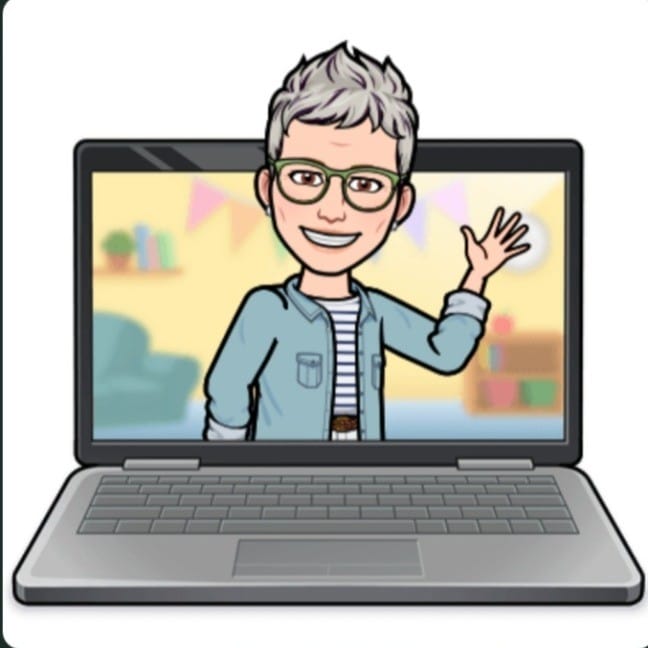
Degree programmes I teach in: Liiketalous (Pori; Kuninkainen), Matkailuliiketoiminta, Yrittäjä, Sairaanhoitaja, Fysioterapeutti, Kuntoutuksenohjaaja, Geronomi, Tietojenkäsittely
Subjects I teach: Swedish (in Finnish), German (in Finnish)
Degree programmes I tutor: Liiketalous, Matkailuliiketoiminta, Yrittäjä

Degree programmes I teach in: Business Administration, Nursing, Energy and Environmental Technology, Mechatronics, Data Engineering, Logistics
Subjects I teach: Professional Communication, English, German
Degree programmes I tutor:
Fine Arts, Mechatronics, Data Engineering, Nursing (Finnish degree program only), Rehabilitation Counseling, Social Services, Elderly Care

Degree programmes I teach in: Business Information Systems, Construction and Municipal Engineering, Electrical and Automation Engineering, Energy and Environmental Engineering, Information and Communication Technology, Industrial Management and Engineering, Mechanical Engineering (Finnish degree programme), Process and Material Technology
Subjects I teach: English
Degree programmes I tutor: Business Information Systems, Construction and Municipal Engineering, Electrical and Automation Engineering, Energy and Environmental Engineering, Information and Communication Technology, Mechanical Engineering (Finnish degree programme), Process and Material Technology
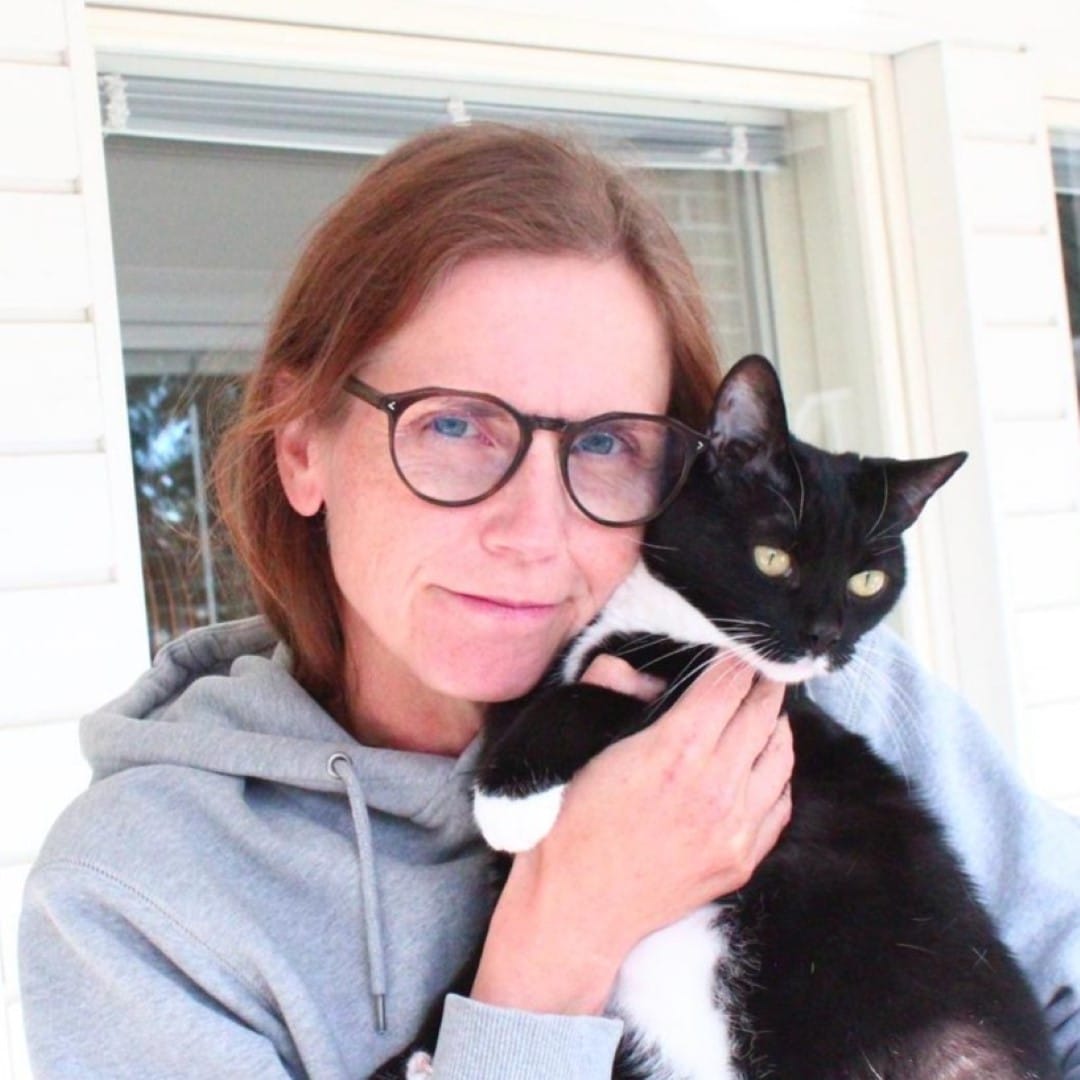
Degree programmes I teach in: Nursing, Physiotherapy, Elderly Care, Social Services, Rehabilitation Counselling
Subjects I teach: English, French, Communication
Degree programmes I tutor: Physiotherapy, Nursing
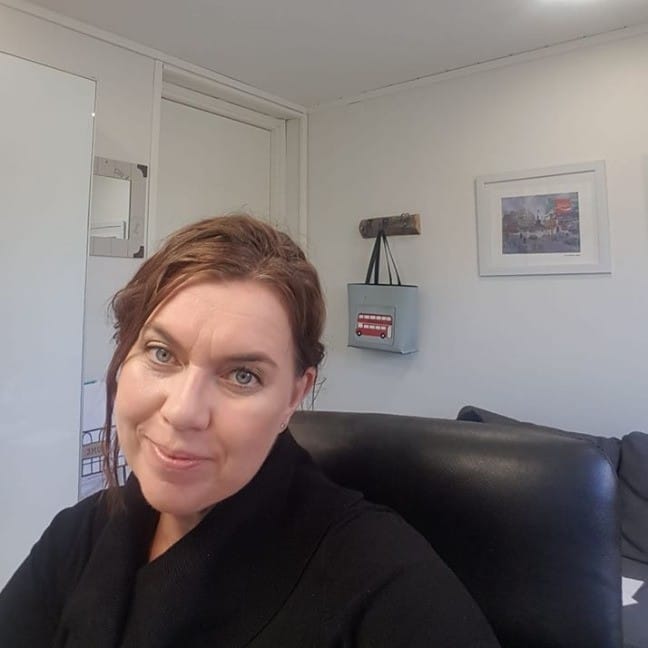
Degree programmes I teach in: Business Administration, Tourism Management, International Tourism Management
Subjects I teach: English, Professional Communication
Degree programmes I tutor: Business (online studies Huittinen), International Tourism Management
SAMK offers you studying languages and communication in a traditional classroom form, on courses entirely online and in combinations of these both.
In addition to these, you can prove your language and communication skills, obtained somewhere else, through the RPL (Recognition of Prior Learning) process.
Have you completed language or communication studies during your earlier studies in an institute of higher education or acquired proficiency in some other way?
Depending on your situation, you can get your prior learning recognised in different ways:
Demonstration of competence is a procedure that can be used to identify competence other than university studies. It can be shown with certificates or as an evaluated RPL exam. If you have acquired the language and/or communication skills required for the degree programme’s curriculum in some other way than at a university, and you have a certificate for it, for example, the so-called YKI certificate of the Finnish language, or the degree certificate of a degree completed with English as the medium of instruction, contact the teacher of the course in question. For more information on the evaluated RPL exam, see below.
The certificate of language proficiency serves as a demonstration of competence only for the compulsory language and communication studies included in the degree. The demonstration of competence for the elective language studies can be shown by contacting the teacher of the language in question.
A correctly completed application speeds up the processing. It is important to note that the application is of the right type and that all necessary attachments are included or a working link to the electronic transcript of records. The processing time will be shorter if the application is addressed to the right person.
The application queues are usually longer at the beginning of the fall and spring semesters when new students start. In this case, the application processing times are longer, up to 4 weeks. Outside of peak times, decisions come faster.
a) Statutory language skills shown previously in another degree are included in the degree studied.
b) If the student has shown the required language skills by completing equivalent studies or studies at the same level (CEFR) in another higher education institution and the studies are not included in any degree, the language studies are accepted as such even if the extent is not quite the same if it is not more than ten years since the completion of the studies. Over ten-year-old language studies, which are not included in any degree, are primarily not directly included in the degree being studied, but competence is shown by demonstration of competence.
c) If the student has completed a degree with English as the medium of instruction, they can apply for demonstration of competence by contacting the teacher of the course in question.
a) Statutory language skills shown previously in another Finnish degree are included in the degree studied.
b) If the student has shown the required language skills by completing equivalent studies or studies at the same level (CEFR) with similar goals in a Finnish higher education institution, and the studies are not included in any degree, the language studies are accepted even if the extent is not quite the same.
c) If the student has completed the National Certificate of Language Proficiency (YKI certificate) at least at level three (3) or the Civil Service Language Proficiency Certificate, the student applies for demonstration of competence based on the certificate by contacting the teacher of Swedish in their degree programme. (Government Decree 481/2003 on the Demonstration of Language Skills in Finnish and Swedish in Public Administration, Act on the Knowledge of Languages Required of Personnel in Public Bodies 424/2003).
Over ten-year-old language studies, are primarily not directly included in the degree being studied, but competence is shown by demonstration of competence. It is recommended to update the communication course included in the previous degree, either as proof of competence or as a new course completion, because the ways of communication have changed a lot in the last 10 years. Agree on the demonstration of competence with the teacher of the course in question.
What is RPL?
Before entering the process of Recognition of prior learning (RPL) discuss with the language teacher responsible for RPL in your degree programme.
With the help of RPL, i.e. Recognition of prior learning, you are able to include the competences acquired earlier as parts of your studies in the higher education institution. Thus, it is possible to avoid overlapping studies and, on the other hand, make the studies more meaningful from the student’s perspective. Additional underlying objectives are the ideas of promoting student mobility, increasing the transparency of education as well as enabling a flexible progress of the studies. RPL aims at supporting the individual study plan of the student.
More information on RPL/(A)HOT, substitution, inclusion and demonstration of competence can be found for example in ME1202 Completing studies (ARC requires SAMK-login).
Demonstration of prior competence for English is done by passing a written exam in the EXAM room and by giving an oral demonstration at a stipulated time.
The RPL demonstration of competence requires passing both written and oral parts of the exam.
Recognition of prior learning (AHOT) for English means the same as completing the course: English for Working Life 3 cr, SY222303 as an evaluated demonstration of competence. The required skill level of the English course is B2 in the Common European Framework of Reference for Languages (CEFR). You can find instructions, schedules and more detailed information on AHOT/RPL Moodle site.
NB! Log in to the section of your own field. Passwords for the different fields:
Field > Password
Nursing >Nursing
Technology >Technology
Tourism >Tourism
International Business > Business
If you already have achievements of Finnish language for which you have a certificate, you can apply for Recognition of your competence through the Peppi system. Ask more about your tutor teacher or Finnish language tutor, if you need help.
If you already have skills but not any certificate, you can ask Recognition of prior learning demonstration from the teacher of the current course. Demonstration of prior competence for Finnish is done by passing a written exam in the EXAM room and by giving an oral demonstration at a stipulated time.
Demonstration of prior competence for Swedish is done by passing a written exam in the EXAM room and by giving an oral demonstration at a stipulated time.
Recognition of prior learning (AHOT) for Swedish means the same as completing the courses: Svenska I arbetslivet, skriftlig färdighet, 1,5 cr, SY220301 and Svenska i arbetslivet, muntlig färdighet 1,5cr SY220302 as an evaluated demonstration of competence. The required skill level of the Swedish course is B1 in the Common European Framework of Reference for Languages (CEFR).
The demonstration of the proficiency of the so-called civil service Swedish requires the approval of both written and oral demonstration. Both demonstrations are assessed separately with their own grades. On the basis of these performances, the language clause of the diploma records the written and oral proficiency of the second domestic language in accordance with the Decree. Grades 1 to 3 provide competence: satisfactory competence and grades 4 to 5: good competence.
However, if the student has already completed one of the parts, for example, they can now give a demonstration of the other part only.
You can find instructions, schedules and more detailed information on AHOT/RPL Moodle site.
NB! Log in to the section of your own field. Passwords for the different fields:
Field > Password
Artificial Intelligence > Tietojenkäsittely
Industrial Management > Tuotanto
International Business > Liiketalous
International Tourism Management > Matkailu
Logistics > Logistiikka
Mechatronics > Konetekniikka
Nursing > Hoitotyö
Physiotherapy > Fysioterapia
Sea Captain > Captain
Accessibility of studying means implementation of a physical, mental and social learning environment which guarantees that every student has equal rights of action.
Satakunta University of Applied Sciences has committed itself to offering every student an equal and accessible university environment. Obstacles hindering studying are paid special attention to and students in need of special support are supported by special arrangements.
If you feel the need of special support for your studies, here you find information on the arrangements and services available at SAMK.
You are entitled to individual support arrangements for your studies if you have an illness, disability or other obstacle impeding the progress of your studies. Discuss the matter with your Teacher Tutor or Student Counsellor, fill in the application for individual study arrangements and send the application (OP16 Application for Individual Study Arrangements) to the Special Needs Teacher as an e-mail attachment (erityisopettaja@samk.fi). Do not attach any expert opinions concerning the obstacles impeding the progress of your studies to the e-mail.
When the Special Needs Teacher has received your application, they will invite you to a guidance discussion, in which you present the expert opinion concerning the obstacle impeding the progress of your studies. The decision on the individual study arrangements is made by the Head of Teaching of your degree programme based on the proposal from the Special Needs Teacher.
Read more in procedural instruction ME1211 Accessibility of studies (ARC, requires logging in)
There are learning difficulties at all educational stages. University students can also have difficulties which obstruct learning and hinder making progress in studies. The difficulties may be various and of multi-level. Motivation, support by the environment and finding suitable study methods do have an effect on how well the student succeeds in his/her studies. We talk about special difficulties of learning when the problems are significant in relation to the student’s talents and educational level. Special learning difficulties are e.g. dyslexia, mathematical difficulties and perceptual problems.
The most common of learning difficulties is the special difficulty of reading. Reading and writing difficulty, dyslexia, has been defined in various ways. According to most recent studies, it is originally a neurobiological, developmental and hereditary disorder. The reading and writing difficulty can change over time. It is characterized by problems with accurate and fluent reading in addition to problems with comprehending the read text. (ICD-11; WHO, 2018.)
The appearance of dyslexia is individual. There can be problems with technical reading, percepting sound correlation, writing and understanding text. Youngsters’ and adults’ reading is often slow. Most difficulties arise especially with foreign languages. Dyslexia makes study performances needing reading difficult, as well as everyday life. It is not a consequence of a deficiency of sight or hearing nor of a neurological illness. (NMI, 2020.)
Dyslexia is a typical reasonfor a student to be granted individual support.
Ms Pia Lahdenmaa is responsible for dyslexia testing at Satakunta UAS. Students willing to test for dyslexia may contact her directly via email and agree on a test date. Before the actual individual testing, the candidate performs a digital screening. The individual test and screening follow standards only for students whose mother tongue is Finnish.
With difficulties in learning languages, you will get help from the language tutors and your own language teachers. Before taking the dyslexia test, discuss with them and consider the need for individual support arrangements.
In addition to learning difficulties, also other reasons may affect the need for support arrangements. These are e.g. neurological disorders, such as ADD/ADHD, ASD or Tourette’s disorder, mental problems or various sensory disabilities. A physician, neurologist or other expert assesses the need for special support. If you need the statement, please contact the public health nurse, who will direct you to the appropriate expert.
Dyslexia tester:
Pia Lahdenmaa
pia.lahdenmaa@samk.fi
Translation services for students and their prices can be found on the student intranet Oiva (requires Login).
National Language Proficiency (YKI) is the official language testing scheme in Finland. National Certificate of Language Proficiency (YKI-todistus) is an official document that you need, for example, if you are applying for Finnish citizenship. The Certificate is useful also when you apply to study or work in Finland. SAMK students in international degree programs may use this to obtain an official certificate of their language skills.
When is the Certificate of Language Proficiency enough to obtain citizenship?
The YKI test assesses general language skills in practical situations. The test consists of four subtests: speaking, listening comprehension, writing, and reading comprehension.
National Certificate of Language Proficiency in Finnish Language (Intermediate B-level)
Satakunta University of Applied Sciences organizes tests in Finnish in the intermediate level (B-level). The Intermediate level tests provide an official certificate of language proficiency at levels 3-4 (B1-B2).
Fees
The examination fee for the test of the intermediate level is EUR 176. Paid registration for the YKI test is binding and the Act on National Certificates of Language Proficiency imposes strict conditions for the test fee refund. The test fee includes only one certificate, which you will receive approximately two months after the test date. A copy of the certificate can be ordered by e-mail at yki-info@jyu.fi. The cost of the copy is €20.
The test days and registration for YKI tests
You can find the test days on the webpage of the Finnish Agency for Education (see below).
The test centre is Satakunta University of Applied Sciences, Pori Campus. An information letter will be sent by e-mail before the test day. The letter will contain all the instructions for the test day, e.g. the campus opening hours and doors.
The registration is binding, which means that, as a rule, the fee will not be refunded if a person cancels the test.
More information and the registration for YKI tests
Special arrangements
If a person taking the test needs special arrangements due to, for example, a hearing or visual impairment or reading difficulties, they can fill in an application to obtain them. Special arrangements can only be applied for at the time of registration.
More information on special arrangements on the webpage of the Finnish Agency for Education
Getting ready for the test
Here are some links (some only in Finnish) to help you prepare for the test
National Certificate for Language Proficiency (the website of the Finnish Agency for Education)
Example exercises for the test, University of Jyväskylä (in Finnish)
You can contact the teachers of Languages and Communication Team at SAMK. See the contact information for the teachers.


Degree programmes I teach in:
English: Business, Art
Spanish: all
Subjects I teach:
Spanish, English

Degree programmes I teach in: Sea Captain, Maritime Engineering, Logistics, Technology and Industrial Management, Business Administration
Subjects I teach: English, Communication
Degree programmes I tutor: Sea Captain, Maritime Engineering, Logistics (English), International Business (English)

Degree programmes I teach in: Business Administration, Nursing, Energy and Environmental Technology, Mechatronics, Data Engineering, Logistics
Subjects I teach: Professional Communication, English, German
Degree programmes I tutor:
Fine Arts, Mechatronics, Data Engineering, Nursing (Finnish degree program only), Rehabilitation Counseling, Social Services, Elderly Care

Degree programmes I teach in: Business Information Systems, Construction and Municipal Engineering, Electrical and Automation Engineering, Energy and Environmental Engineering, Information and Communication Technology, Industrial Management and Engineering, Mechanical Engineering (Finnish degree programme), Process and Material Technology
Subjects I teach: English
Degree programmes I tutor: Business Information Systems, Construction and Municipal Engineering, Electrical and Automation Engineering, Energy and Environmental Engineering, Information and Communication Technology, Mechanical Engineering (Finnish degree programme), Process and Material Technology

Degree programmes I teach in: Nursing, Physiotherapy, Elderly Care, Social Services, Rehabilitation Counselling
Subjects I teach: English, French, Communication
Degree programmes I tutor: Physiotherapy, Nursing

Degree programmes I teach in: Business Administration, Tourism Management, International Tourism Management
Subjects I teach: English, Professional Communication
Degree programmes I tutor: Business (online studies Huittinen), International Tourism Management


Degree programmes I teach in: Energia- ja ympäristötekniikka, Konetekniikka, Rakennus- ja yhdyskuntatekniikka, Sähkö- ja automaatiotekniikka, Tieto- ja viestintätekniikka, Sosiaaliala, Kuvataide, Hoitotyö, Tekniikan Nopsa-väyläopinnot (SAMK kampus Pori ja verkko-opinnot)
Subjects I teach: Swedish (in Finnish), Russian (in Finnish)
Degree programmes I tutor: Energia- ja ympäristötekniikka, Konetekniikka, Prosessi- ja materiaalitekniikka, Rakennus- ja yhdyskuntatekniikka, Sähkö- ja automaatiotekniikka, Tieto- ja viestintätekniikka, Tietojenkäsittely, Tekniikan Nopsa-väyläopinnot (SAMK-kampus Pori ja verkko-opinnot)

Degree programmes I teach in: Liiketalous (Pori; Kuninkainen), Matkailuliiketoiminta, Yrittäjä, Sairaanhoitaja, Fysioterapeutti, Kuntoutuksenohjaaja, Geronomi, Tietojenkäsittely
Subjects I teach: Swedish (in Finnish), German (in Finnish)
Degree programmes I tutor: Liiketalous, Matkailuliiketoiminta, Yrittäjä
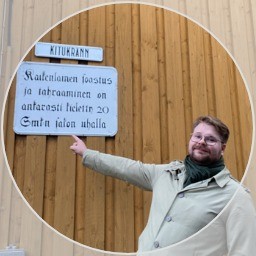
Degree programmes I teach in: Business Administration; Entrepreneur, Tourism and Hospitality Business Management, Health Care, Electrical and Automation Engineering, Energy and Environmental Engineering, Construction and Municipal Engineering, Technology and Industrial Management, Path Studies (Open UAS)
Subjects I teach: Swedish language, Professional Communication
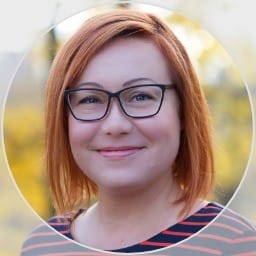
Degree programmes I teach in: Business Administration, Physiotherapy, Logistics (English), Physiotherapy (English), Data Engineering (English), Nursing (English)
Subjects I teach: Finnish, Communication

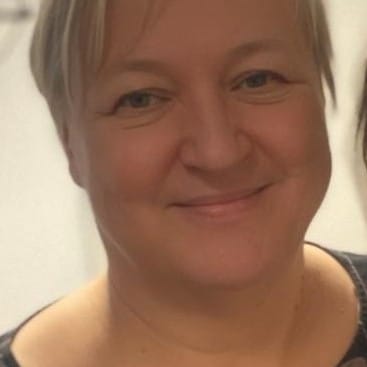
Degree programmes I teach in: Process and Material Technology, Energy and Environmental Engineering, Construction and Municipal Engineering, Social Services, Nursing, International Business
Subjects I teach: Professional Communication (in Finnish), Finnish 1, 2 and 4

Degree programs I teach in:
in English degree programs (Finnish)
in Finnish degree programs (Professional Communication)
Subjects I teach:
Finnish language
Professional Communication (in Finnish)
Coordinator of YKI Examination Days
Developing Finnish language learning in Projects
Degree programmes I tutor:
Support concerning Finnish language in English-language degree programs